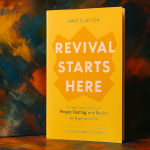by Nick Barden
I was born Catholic and have been trying to get back ever since.
My family tells the story of our exodus – of my disrupting the Mass as a caterwauling infant, and of the cold, implacable judgment of the parish priest. I spent the majority of my youth batted about from one Baptist or Pentecostal church to another. Baptists, it was said in those days, continued the gift of prophecy, Pentecostals, the gift of tongues. The holy fire of the Baptists always seemed intent on burning clean this nation with the judgment of the Lord, that of the Pentecostals was rather the internal expiation that burns clean a holy man. All showed up at the death-houses of this nation – the Protestants with a vacant white cross for each slaughtered innocent, the Catholics also with a cross, adorned with Christ crucified.
Baptists, it seems, hold to their doctrine of purgatory stronger than any Catholic I’ve ever met. Charles Williams, that friend and colleague of C.S. Lewis, proclaimed two possible paths of Christian spirituality – those of negation and affirmation. The Catholics are content to walk the path of negation in the afterlife; the Baptists seek it here and now. All the world is cursed, they rightly ascertain, and they await with righteous fervor the full consummation of her wickedness and the coming of the new Jerusalem through a final expiation by fire. Judgment leaps forth from every street corner, shouting “repent, for the kingdom of heaven is at hand.” It is a terrible thing to fall into the hands of an angry God.
Whatever the fervor of the Baptists may be, the Pentecostals have it doubly so. These are the days of Elijah, Moses, and David, with a spirit burning clean a broken vessel, drawing the individual believer ever onwards in a journey of holiness. Impressed upon their sensibility is the imminence of the kingdom of God. Here, now, they experience ecstatic union, oneness and wholeness, with a Word living, active, and cutting to the quick. If the Baptists wanted to call down fire upon the nation, the Pentecostals called it down upon themselves, and the baptism of the Spirit is a terrible thing.
My mother told me once that she believed that the Church went through ages of law and ages of grace. In times of harsh legalistic piety, the preacher of the age was called to proclaim a message of grace – “not by works of righteousness that we have done, but according to his mercy, he saved us.” But woe to those ages that fall to the other extreme, for faith without works is dead. The Law has both a first and a third use. To each God calls his leaders, is he not God both of the Wesleyans and tractarians? Lord of Finney and of Newman?
In this day and age, where the conversion from low to high church marks a sort of intellectual coming of age for that wide-eyed evangelical kid, encountering the riches of liturgy and Church history for the first time, it’s cool to point and laugh at the quaint naivete of our childhood church. But I think the criticism is often misplaced. We fall in love with the abstract form of whatever tradition we pursue, not realizing that all vices common to man must afflict us there too. The carefully chosen poetry of the liturgy, the immense significance of the sign of the cross, and the words of absolution and consecration are all meant to be enfleshed in a particular church body. I wonder how many of us can survive the jarring transition as the Word becomes flesh and dwells among little old ladies with outrageous hats, caterwauling infants, and cold, implacable parish priests.
I met Christ once in a small Presbyterian church – the halfway house between symbol and sacrament. The words “take, eat, this is my body” have a lot of power if you’re not insisting on Christ’s absence. There are two ways of looking at the sacrament, I suppose. One can see it charged with the presence of Christ, body meeting body in a tangible way. Or one can see it for the painful hiddenness of God, calling one’s gaze out of the world to the promise of eternity. Christ has ascended and is here with us, but can our minds hold the two propositions together at the same moment? Can we affirm and negate simultaneously? Or must we leave the duality scattered amidst a score of churches, and the same number of systematic theologies?
The shift from negation to affirmation is a veritable revolution, but not without cost. Where two or more Lutherans are gathered, there’s always a fifth. Sin boldly and go before the Cross boldly, Luther proclaimed, though I’m fairly certain you’ll only find the latter half of that statement in Scripture. Baptists have their purgatory in this life and Catholics want it in the hereafter. But for Lutherans, purgation has been accomplished by Christ, once and for all, and the world itself is baptized into his death – beautiful, broken, and shot through with the glory of Christ. “Your sins are forgiven,” this the Lutheran understands well. But it takes the Calvinist to drive the second part home – “go and sin no more.”
It’s been said that the best atheist in literature was written by a Christian. Well, the best Pentecostal in literature was written by a Catholic, and I’m not sure it’s coincidental. “The Catholic novelist in the South is forced to follow the spirit into strange places and to recognize it in many forms not totally congenial to him,” his author once said. “I think he will find a good deal more kinship with backwoods prophets and shouting fundamentalists than he will with those politer elements for whom the supernatural is an embarrassment and for whom religion has become a department of sociology or culture or personality development.” Perhaps the search for unity must ultimately fall back to the words of the anima Christi – “soul of Christ, sanctify me, body of Christ, save me, blood of Christ, inebriate me.” Perhaps Christ’s words, “this is my body, broken for you,” were prophetic as well as sacramental.
If so, then the search for Catholicism is ultimately a search for an ecumenism of brokenness. “A distorted image of Christ is better than no image at all,” O’Connor says, and I suspect that it’s better than one of perfect clarity. The finite cannot contain the infinite, and though we’re all suspicious of any man who tries to fit the infinite in his head, we do not know how to take the finitude of the Church herself before an infinite God. Must she too see now through a glass darkly; then face to face?
 Nick Barden studied the classical liberal arts at Patrick Henry College, where his research focused on theodicy, the atonement, and the theory of rebellion. He currently resides in Purcellville, Va., and intends to pursue higher education in literature and philosophy of religion.
Nick Barden studied the classical liberal arts at Patrick Henry College, where his research focused on theodicy, the atonement, and the theory of rebellion. He currently resides in Purcellville, Va., and intends to pursue higher education in literature and philosophy of religion.

















